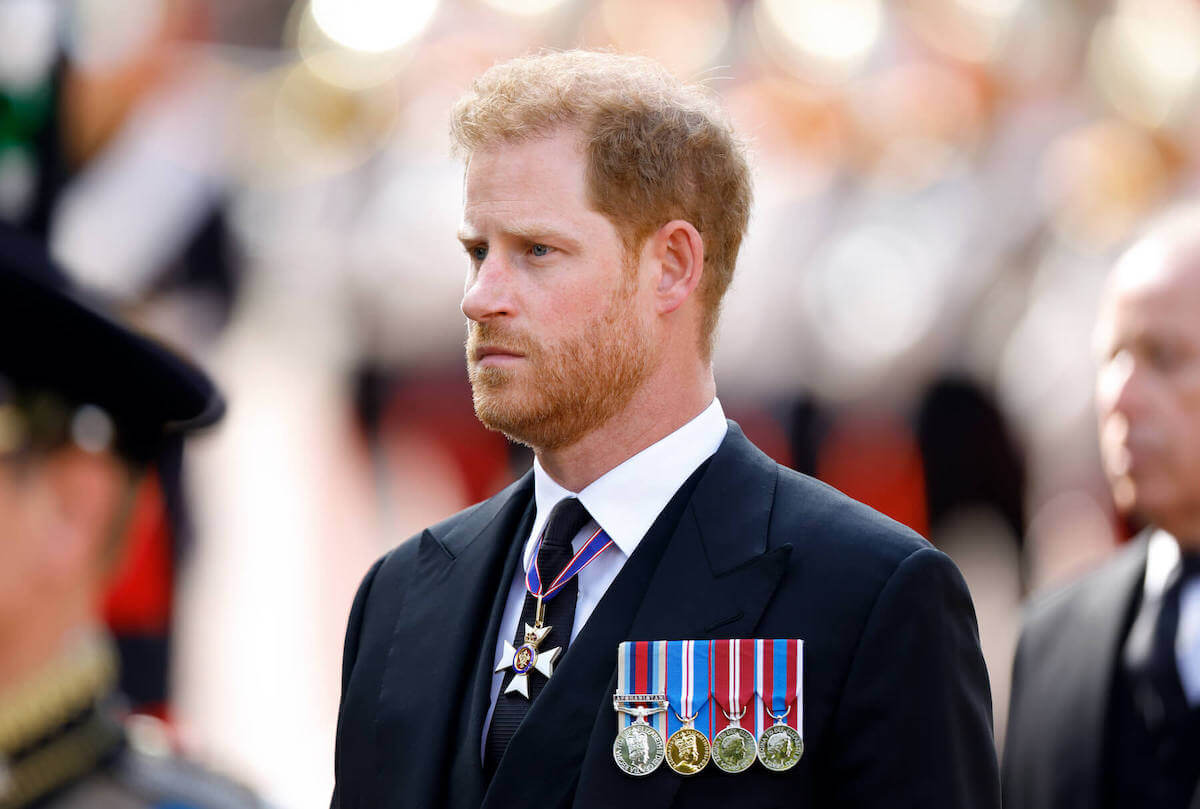
‘Prince Harry Had ‘A Lot of Trauma’ Despite Being Raised With Immense Privilege, According to Dr. Gabor Maté
Prince Harry shed light on some of his most difficult childhood experiences in his memoir Spare, and his Netflix documentary, Harry and Meghan. And according to mental health expert Dr. Gabor Maté, despite his privileged upbringing, the royal has been through “a lot of trauma.”
Dr. Gabor Maté talks about the trauma Prince Harry faced as a child

Dr. Maté is a renowned mental health expert, speaker, and author who has written several books on addiction, child psychology, and Attention Deficit Disorder. His book, In the Realm of Hungry Ghosts: Close Encounters with Addiction, won the 2009 Hubert Evans Non-Fiction Prize, according to Dr. Maté’s website. And he has earned some of Canada’s highest accolades, including the Order of Canada and a Civic Merit Award.
Dr. Maté recently sat down with Prince Harry to promote his memoir Spare, and to spread awareness about mental health. When talking to the royal about his military service and the lack of emotional and physical affection he received as a child, the doctor noted Harry had experienced a ‘lot of trauma.” And he listed all the different types of traumas he faced.
“When you look at the literature on trauma, there are what we call the ‘big T traumas,’ the terrible things that happen, or the difficult things that happen, such as the death of a parent, a divorce, conflict in the family,” Maté explained. “You had those.”
“And then there’s what we call the ‘small T traumas,’ which is not about bad things happening that shouldn’t have, but the good things happening that should have,” he continued. “And that’s the being touched and held and understood and heard.”
When the Duke of Sussex questioned whether he had all six types of trauma, Maté confirmed that he did. And acknowledging Harry comes from a highly privileged background, the doctor explained that privilege doesn’t negate any of the trauma.
“So when you say you had a great childhood, I’m saying I know there were great moments,” Maté said. “But I think there was also a lot of suffering.”
Prince Harry reveals why he avoided therapy for years after Princess Diana’s death
Harry’s mother, Princess Diana, died in a tragic car crash when he was 12-years-old. In his memoir, the Duke recalls not crying for years after her death. And in his chat with Maté, he revealed that he avoided going to therapy because he believed it would make him move past her death and forget her.
“One of the things I was most scared about was losing the feeling that I had of my mom,” Prince Harry said. “I thought that if I went to therapy, that it would cure me and that I would lose whatever I had left, whatever I had managed to hold on to of my mother.”
But when Harry finally gave therapy a chance, it had the opposite effect. It helped him retain those feelings for his mom and paved the way for him to find more happiness in life.
“I turned what I thought was supposed to be sadness — to try to prove to her that I missed her — into realizing that, actually, she really just wanted me to be happy,” Harry recalled. “And that was a huge weight off my chest.”
Despite the trauma, Prince Harry doesn’t see himself as a victim
Prince Harry has dealt with several difficult situations in his life, including Princess Diana’s death, the stress and trauma of war, and ongoing drama with his emotionally distant family. But despite his challenges, the Duke doesn’t want to be labeled as a victim.
“I certainly don’t see myself as a victim,” he insisted in his discussion with Maté. “I am really grateful to be able to share my story in the hope that it will help empower and encourage others. In some shape or form, we are all connected through trauma. I have never looked for sympathy in this.”
Harry added, “For me, the experience that I have had throughout my childhood, my life, my 38 years — albeit relatively short — those experiences and through the work I have done for two decades now around mental health and mental illness, I have always felt as though sharing what I can of my story will help someone or some people out there.”



